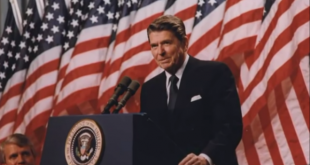According to a new Pew Research Center survey, a majority of American adults have prayed for an end to the COVID-19 crisis.
We’re in uncertain times, and social distancing isn’t helping people feel certain and hopeful that our conditions will improve anytime soon. How much longer do we distance and limit ourselves from family and friends and get back to living life as usual? Will life after COVID-19 continue “as usual”?
We might be looking at a new way of living after this is all over.
According to the Pew survey, almost nine in 10 people in the U.S. say their lives have changed because of the COVID-19 pandemic. The survey also revealed something about worship services (emphasis added):
The virus also has impacted Americans’ religious behaviors. More than half of all U.S. adults (55%) say they have prayed for an end to the spread of coronavirus. Large majorities of Americans who pray daily (86%) and of U.S. Christians (73%) have taken to prayer during the outbreak – but so have some who say they seldom or never pray and people who say they do not belong to any religion (15% and 24%, respectively).
Among U.S. adults who said in an earlier survey they attend religious services at least once or twice a month, most (59%) now say they have scaled back their attendance because of the coronavirus – in many cases, presumably because churches and other houses of worship have canceled services. But this does not mean they have disengaged from collective worship entirely: A similar share (57%) reports having watched religious services online or on TV instead of attending in person. Together, four-in-ten regular worshippers appear to have replaced in-person attendance with virtual worship (saying that they have been attending less often but watching online instead).
The survey revealed political differences in perspectives about the COVID-19 outbreak:
Republicans are more likely than Democrats to say they feel comfortable proceeding with a variety of activities despite the coronavirus outbreak. For example, 69% of Republicans and people who lean toward the GOP say they would be comfortable visiting with a close friend or family member at their home, compared with 55% of Democrats and Democratic leaners. Along these same lines, Democrats are more likely than Republicans to say their lives have changed in a major way as a result of the virus, and that they have been feeling psychological distress.
This virus outbreak has touched every American. Children aren’t in school, and they’re discouraged from being with their friends. Mothers and fathers are homeschooling while trying to work from home. Or they’re still traveling the daily commute to work, afraid of the risk of infection. Or they’ve been laid off. Some shoppers see empty shelves in grocery stores. Some Americans haven’t been able to find a basic item like toilet paper for weeks.
And we just don’t know when it will end…or how.
More women than men say they have prayed for an end to the spread of the disease, and more black respondents than white and Hispanic respondents say the same. Older people are more likely than younger adults to say they have prayed for an end to the virus, and more Republicans than Democrats have prayed about the outbreak. These patterns are consistent with overall differences in the religiousness of these groups.
One thing is certain about this crisis: it’s given us time to think. For Christians, it is giving us time to slow down, renew our faith, and learn more about the God we worship.
 Black Community News News and Commentary for Christians
Black Community News News and Commentary for Christians



